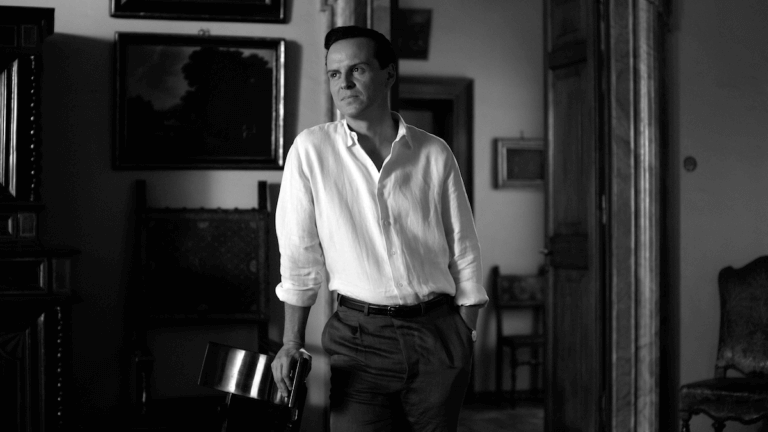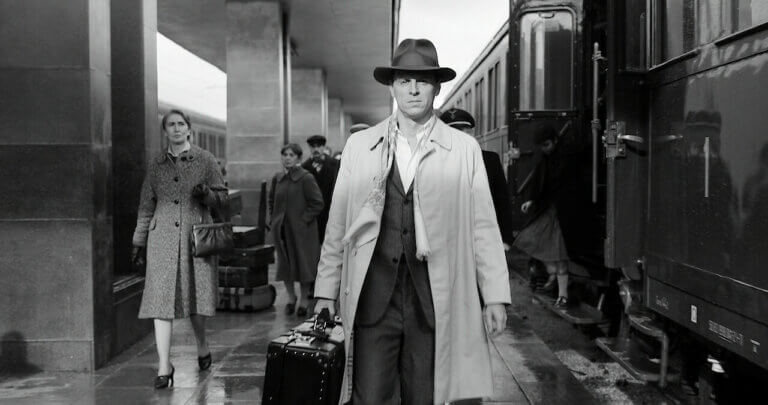Acting Up: Andrew Scott Steals the Show in Netflix’s ‘Ripley’
The Snapshot: In Netflix’s Ripley, Andrew Scott is Thomas Ripley, a sociopathic grifter living in New York in the early 1960s who is hired by a wealthy man to travel to Rome and bring the man’s son home to America. This begins a journey of deceit, fraud and murder.
(The limited series premiered April 4 on Netflix, and all episodes are now streaming)
The Performance: Criminals are fun to play. They’re inherently bad, and being bad is fun. That’s why some actors revel in playing villains because they get to take these bad characters — bad as in lacking moral fortitude, not in substance — and make them somehow sympathetic. The best villains, after all, believe that they’re right. Take the Marvel Cinematic Universe’s Thanos. He was a genocidal maniac, but in his heart, he only wanted peace. Mass murder and the deaths of quadrillions of living beings were just a necessary side effect.
Thomas Ripley, however, has no such lofty ambitions, he’s just a low-level con man out for himself, preferably with as little effort as possible. The hero, or rather anti-hero, of a series of famous novels by Patricia Highsmith, Ripley has been adapted before, most memorably by Anthony Minghella in the 1999 film The Talented Mr. Ripley. In that version, Matt Damon played the role to moderate acclaim. The issue was that he was overshadowed by the man playing the ill-fated Dickie Greenleaf, Jude Law, who scored an Oscar nomination for his efforts.
There’s no chance of that happening this time around.
 Photo credit: Netflix
Photo credit: NetflixIn the latest screen version, Netflix has given us an eight-episode limited series from writer-director Steven Zaillian, who won an Oscar for writing Schindler’s List. The title role is played by Irish thespian Andrew Scott, who just about explodes off the screen in a remarkable turn that is alternately seductive and menacing, and so powerful that, no matter who else is in the frame, you can’t take your eyes off him.
The mistake a lot of actors make when playing a sociopath is to tip their hand too early. Giving clues as to their intentions and inherent evil. Scott avoids this by keeping a very cool veneer, even as he’s plotting how he’s going to get where and what he needs. There’s no wink at the audience, no self-conscious smirk to clue us into what he’s got going on. Instead, he gives us a man who appears to be the essence of calm. He is serene. He is a glassy pond at sunrise, without the slightest ripple, until he is ready.
That moment comes at the end of the first episode, when he finally shows us some semblance of his true self, in a chilling moment that sets up the rest of the story. No spoilers here, but suffice it to say, it’s much more menacing than seductive, although there is plenty of the latter in store.
Scott is a brilliant actor who has played his share of villains, but what makes his Ripley so much more interesting than, say, Damon’s, is how relatable he makes the criminal feel. There’s a quiet desperation to him at the story’s beginnings, but not an overwhelming one. Scott acts so much with his eyes that we both empathize with him and wonder what’s going on behind them. They may be the windows to the soul, but Scott wields them instead as mirrors, and that paradoxically serves to draw us in further.
One doesn’t have to love villains to love particular villains. We can pick and choose, based on who the villain is or, even better, how that villain is portrayed. James Bond fans have their favorite versions of Blofeld, for instance, and Batman fans have their favorite Joker. Take some time to sit down with Andrew Scott. He’ll likely become your favorite Ripley.
 Photo credit: Netflix
Photo credit: NetflixThe Career: Andrew Scott had already been a working actor for more than a decade when he showed up in the BBC’s monumental 2010 version of Sherlock, which made Benedict Cumberbatch an international star. He appeared in both Saving Private Ryan and Band of Brothers, for instance, and played Colonel William Smith in four episodes of HBO’s John Adams opposite Paul Giamatti. He was in lots of British TV shows and some short films, and he was someone who had something special.
It was his turn as the villainous Moriarty in those Sherlock episodes that took him to the next level. Suddenly, this was a guy who could play a sociopath with charm and wit, adding to the considerable deviousness and menace that would show up again in several nasty roles, of course, most recently Netflix’s Ripley. In the immediate aftermath of Sherlock came Daniel Craig’s fourth outing as James Bond, Spectre, in which Scott was the traitorous C, leader of the British domestic secret service and ally of Christoph Waltz’s Blofeld.
But of course, Scott is far more than that, which he proved in the 2019 second season of Phoebe Waller-Bridge’s seminal Amazon series Fleabag, in which he showed up as a Catholic priest who falls in love with Waller-Bridge’s title character. Scott’s priest was sexy and charming and romantic and made it clear that there was more to this actor than just villains. That was hammered home yet again in 2023, with his leading turn in All of Us Strangers, as a screenwriter who gets a mysterious new way to heal from losing his parents 30 years before. Scott is heartbreaking in the movie, offering a hopeful sadness that is somehow never off-putting. On the contrary, it only serves to make the audience feel for him even more.
The point is, you can’t pin down Andrew Scott. He’s as versatile as they come, and now we get eight episodes of seeing that versatility in action. It’s not just Mister Ripley who’s talented.
Casting directors use Casting Networks every day to discover people like you. Sign up or log in today to get one step closer to your next role.
You may also like:
- ‘Barbarian,’ ‘Lisa Frankenstein’ Casting Director Nancy Nayor Opens Up About Genre Casting
- Remember, Acting is a Job, Part 2: Theatre, Not Therapy
- Key Equipment for Recording Your Voiceover Projects at Home




